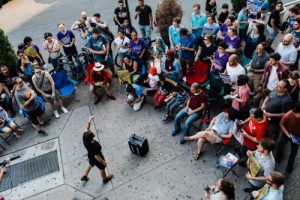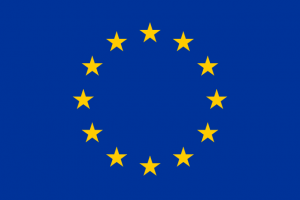


That Brazil experienced a surprising political movement and elected a right-wing government after decades of a democratic socialist regime, many people already know. However, a political movement is not enough to change the future of a nation. The reality is that Brazil is missing the most important element needed to root out an ideology of tyranny: an intellectual movement. The lack of a right-wing intellectual movement can cause dangerous consequences in Brazil.
In the book The Intellectuals and Socialism, Friedrich Hayek explains the power of intellectuals in shaping public opinion. He argues that an intellectual movement is not interested in approaching issues practically in the current moment, but rather approaching issues theoretically, appealing to philosophy and imagination. As a result, while a political movement can influence public discourse momentarily, the intellectual movement has a lasting effect and successfully persuades public opinion. The same argument is made by Auguste Comte, the French philosopher known as the founder of the discipline of sociology. In explaining how the creation of theories has a lasting impact on culture, Comte once remarked that “the dead govern the living.” Intellectuals may die but their ideas continue changing minds.
To illustrate the power of ideas in driving social and political movements, Hayek uses socialism as an example:
Socialism has never and nowhere been at first a working-class movement. It is a construction of theorists, deriving from certain tendencies of abstract thought with which for a long time only the intellectuals were familiar; and it required long efforts by the intellectuals before the working classes could be persuaded to adopt it as their program.
The same can be said of the French Revolution, which was first sparked by a small group of intellectuals that eventually gave rise to a practical movement and many other movements that followed. By no means was the shift from a socialist to a capitalist government in Brazil revolutionary, since politicians were elected democratically. Ideological changes in Brazil gained traction in the political arena but there is no intellectual movement to sustain the changes. While the current government in Brazil is capitalist, the left still controls the intellectual vehicles within society.
The leftist intellectual movement in Brazil is not contemporary and, as in many other Latin American countries, started over a century ago. In this long and planned process, the left successfully dominated crucial public opinion channels in the country, such as the media, NGOs, public bodies and universities. The most visible example of this phenomenon is the Sao Paulo Forum, an annual conference held by socialist intellectuals, political parties and organizations with the mission of discussing left-wing and progressive ideals, promoting the domination of socialism in Latin America and the Caribbean. The conference was created in 1990 and held the first meeting in the city of Sao Paulo, Brazil. Since its creation, the Sao Paulo Forum — accused by some of being involved with the FARCs (narco-terrorist Revolutionary Armed Forces of Colombia) — silently influenced the media and effected governments throughout Latin America and Caribbean. Today, the Sao Paulo Forum is not as influential as it used to be at the beginning of the century, however the conference is still alive, bringing together left-wing ideologues to regain power in the continent.
As Hayek discusses in The Intellectuals and Socialism, socialists drive much of the intellectual debates and therefore dominate public opinion. Hayek urgently calls for a classical liberal intellectual movement to gain public opinion and succeed in the long term:
We need intellectual leaders who are willing to work for an ideal, however small may be the prospects of its early realization. They must be men who are willing to stick to principles and to fight for their full realization, however remote. The promises they must leave to the politicians.
The Intellectuals and Socialism was published in 1965, however it still serves to explain the current moment in Brazil. Polls have showed that recently elected President Jair Bolsonaro has lost significant support since his election, and only 33% of the population considers his government to be “good”, indicating one of the worst approval rates in recent history. Certainly, this is the consequence of a nonexistent conservative intellectual movement.
Indeed, Brazil needs more people devoted to conservative ideals as the philosopher Olavo de Carvalho, one of the few individuals mitted to defending conservatism, has pointed out. Carvalho has prominently opposed the Sao Paulo Forum since its inauguration and his ideas have had a great influence on President Bolsonaro, who gave his first speech as president while holding one of Carvalho’s books. However, Carvalho is outnumbered in the intellectual arena by socialists and the media is very hostile towards him, often labeling him as “insane” — as Terrence McCoy does in his erroneous article in the Washington Post. As a result, Carvalho has acquired a negative reputation among many Brazilians and has been unable to create a solid movement.
Perhaps, more conservative intellectuals will emerge when conservative think tanks are founded in Brazil, institutions fundamental in debating theories in the intellectual arena. While the United States currently boasts 1871 think tanks, Brazil has only 103, behind countries with a significantly smaller population such as Japan, Italy and Argentina. It is not for nothing that Carvalho states in many of his books that there is a “hate” for intellectualism in Brazil
There is no question that the election of a right-wing government is important. The conservative politicians elected play a crucial role in the process of an ideological transition desired by many Brazilians, since they are the ones who implement the changes. However, as Hayek shows, politics is not enough. Without a strong and persistent intellectual movement I am afraid the current political movement in Brazil will not last for long.
Featured Image: Home page photo published under Creative Commons Attribution 2.0 Generic:
Olavo de Carvalho, Jair Bolsonaro and other Brazilian authorities in Washington D.C, 2019.









